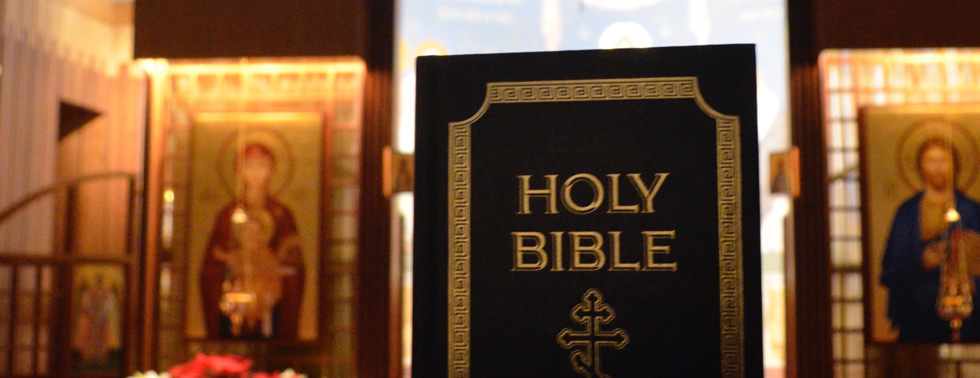Wisdom! Let us Attend!
“During the solemn singing of the Thrice-Holy Hymn to the Most Holy Trinity, the clergy proceed to the High Place behind the altar table, blessing Christ who “sits upon the throne of glory, upon the cherubim…” From this place, as we have already mentioned, the celebrant turns and blesses the people with the Peace of Christ. After the Peace is returned, the Epistle of the Divine Liturgy is chanted, usually by a layman of the Church or one in the minor order of Reader.
The epistle reading in traditional Church language is called the apostle or the apostolic reading. This is so since the reading may be taken from the Acts of the Apostles as well as from one of the apostolic letters of the New Testament scriptures. The word epistle means letter. We should note here that the only book of the new Testament writings which is not read liturgically in the Orthodox Church is the Book of Revelation because of its apocalyptic character.
There is a series of epistle readings prescribed in regular order for each day of the Church Year, with the exception of the week days of Great Lent when the Divine Liturgy is not celebrated. There are also special epistle readings prescribed for particular Church celebrations. Thus at any given Divine Liturgy more than one epistle lesson may be chanted.
Before the actual reading of the epistle, an appointed verse from the Psalter is sung called the prokeimenon, which literally means, ‘that which goes before.’ As usual, the prokeimenon, with its verse, is suited to the particular liturgy and prepares the people to listen to the Word of God.” — Excerpt from oca.org article “The Epistle”

